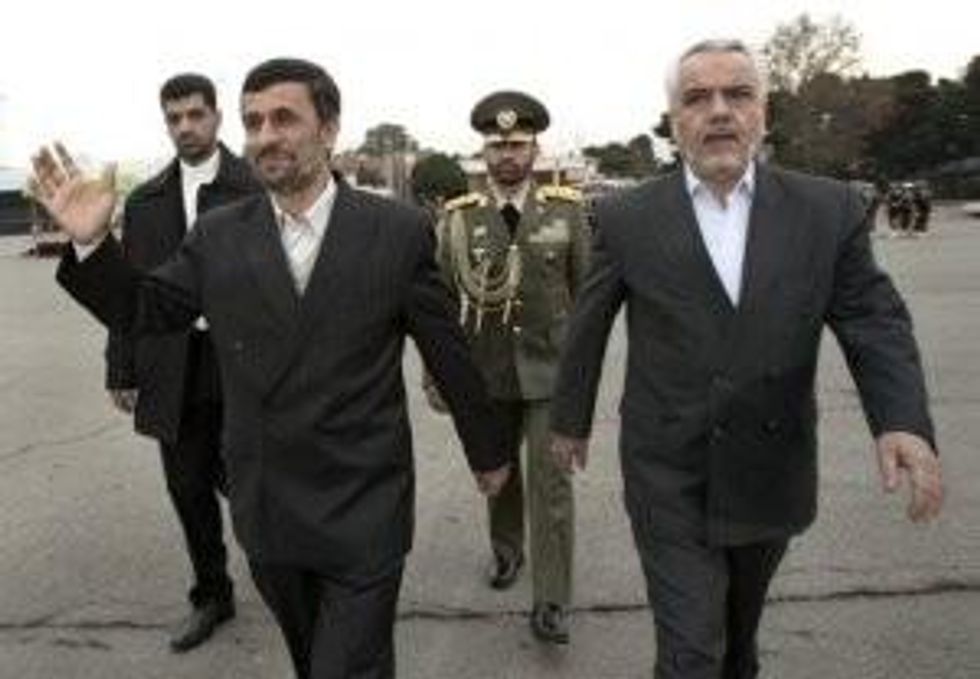There are cynics among us who would argue that the European Union's oil sanctions against Iran, which went into full effect on 1 July, are a double triumph for Israel's Prime Minister Binyamin Netanyahu.
If you assume that the real reason for his apparent hysteria over the alleged threat of Iranian nuclear weapons is to divert international attention from illegal Israeli settlements in the occupied Palestinian territories, then his strategy has been a spectacular success. The main reason that Israel's allies are imposing these sanctions is to head off an Israeli military strike against Iran that would destabilize the entire region - and in the meantime, nobody is talking about the Palestinians.
In addition, the wily Netanyahu gets a bonus, for these sanctions really are going to hurt Iran economically. Iran is Israel's most dangerous and implacable enemy, and suddenly its oil exports, and with them its hard currency earnings, are going to be cut in half. Not a bad return on an Israeli policy that cost nothing except some threatening rhetoric.
To be fair, not everybody is convinced that Netanyahu's wild talk about attacking Iran is just hot air. A whole parade of senior Israeli military and intelligence officials has gone public to say that there is no imminent threat of Iranian nuclear weapons, and that attacking Iran "pre-emptively" would be deeply stupid. Clearly, they think Netanyahu really is a mad dog - but many others remain unconvinced.
In any case, the question of the moment is not Netanyahu's strategy. It is whether these sanctions will hurt Iran so much that it will have to give up its cherished program for an independent capacity to enrich nuclear fuel in order to make the pain stop. The answer is: probably not, but they're going to hurt a lot.
The European Union normally takes about one-fifth of Iran's exports. If Iran cannot find new markets elsewhere, the loss of those exports would be serious but not crippling. However, at the same time the United States is imposing punitive measures on countries elsewhere in the world that continue to buy Iranian oil, and Europe has banned its maritime insurance companies from selling cover to ships carrying Iranian oil.
European companies still dominate the global market for maritime insurance, so that matters: South Korea, for example, will stop buying Iranian oil this week. And while the most powerful countries outside Europe can safely defy the American threat of punitive measures, knowing that they can negotiate exemptions for themselves, many weaker countries have no choice but to obey the American demands.
A week ago (27 June), an Iranian official admitted privately that the country's oil exports had already fallen 20 to 30 percent from the normal level of 2.2 million barrels a day. It is estimated that by 1 July, the day all the sanctions came formally into effect, lost sales of Iranian oil amounted to more than a million barrels a day - that is to say, about half of the usual total.
This is not a trivial matter for Tehran. Given that the price of oil is also significantly down, and that Iran is now discounting oil sales to its traditional customers heavily to keep them from defecting, its ability to pay for imports is going to be severely constrained - this in a country where the average price of ten basic foods has already risen 70 percent in three months.
And there is another matter as well. Iran is already storing oil offshore in tankers, but that is clearly only a short-term solution to the problem of what to do with the unsold surplus. It is also cutting back on how much oil it pumps: the latest figures from the Organization of Petroleum-Exporting Countries say that Iranian production is already down by 720,000 barrels per day.
But after a certain point Tehran can no longer deal with the problem by just cutting production at all its wells; it has to start shutting some of them down completely. Re-starting production later can be tricky, and some wells will be permanently damaged by the shutdown. The longer the sanctions last, the more difficult it will become for the Iranian regime.
Yet there is almost no chance that Iran will back down. You do not have to assume that the regime really wants to build nuclear weapons to explain its defiance. This is a country that has faced a century of exploitation and humiliation at the hands of the West, and even those Iranians who loathe the regime will close ranks in defence of their nation's right to enrich its own nuclear fuel.
On the other side, President Barack Obama will go on tightening the screws, because he dares not gamble that Netanyahu is only bluffing about attacking Iran at least until he has won re-election this November. There is no sign that other oil-exporting countries are going to show solidarity with Iran, and there is enough oil on the market at the moment that nobody else is going to go short of the stuff because of the embargo.
So it is going to be a long confrontation, and a miserable experience for the average Iranian. But for the rest of the world, it will just be a news story.



